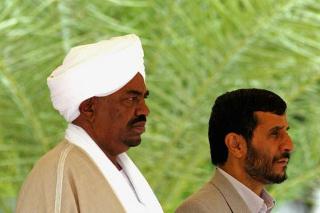UN resolution against Iran to delay Ethiopia’s power export to Sudan
By Tesfa-Alem Tekle
April 9, 2012 (ADDIS ABABA) – A resolution passed by the UN Security Council to ratify further sanctions on Iranian assets is likely to delay Ethiopia’s plans to export electricity to Sudan.
The sanctions will affect the Iranian firm that is constructing power substations that would enable Ethiopia to export hydro-power generated electricity to neighbouring Sudan.

However, without the completion of the three substation projects near the Sudanese border it is unlikely that Ethiopia will be able to start selling its energy on schedule.
The Ethiopian state utility had delayed the remaining payments – amounting to some 40 percent of the total contract – to be made to the Iranian company, Iran Power and Water Export of Equipment and Services Company (IPWEESC), because of the UN imposed sanctions on Iranian assets bans member states from making financial transfers from their territory.
“Due to the sanction, we could not effect payments for the outstanding balance,” a senior official from the state utility (EEPCo) told a local newspaper, the Fortune, on condition of anonymity.
Funded by the World Bank, the US$41 million power interconnector is a 230KV and 296KM long transmission line that stretches between the Ethiopian towns of Bahir-Dar and Metema and connects with a transmission line in Sudanese border town of Gedaref where it joins Sudan’s power grid.
Following the difficulty, the World Bank along EEPCo are considering other options such as making new deals with the Iranian firm’s four international suppliers – Ariva (French), Erickson (Italian), Philips (Dutch), and TBEA (Chinese), for payment for and delivery of the equipment.
Sudan Tribune has learnt that the state utility has begun negotiations with the suppliers.
The Sudanese government has also decided to import US$300,000 worth of equipment to resolve the problem thereby avoid the possible delays of power exports.
Iran has been the subject of recent international pressure as there are allegations that it intends to increase its military capacity; specifically its capacity to strike Isreal.
Sudan is also subject to sanctions, for allegedly harbouring terrorists.
The pariah states of Sudan and Iran have long had close ties, as their isolation deepens these ties have strengthened.
Ethiopia is investing billions of dollars to building power plants hoping to be a regional power hub. It is currently constructing a massive, controversial hydro-power plant in Nile river near the Sudanese border and plans to increase power exports to Khartoum from the planned initial 100 MW to 1,200MW when the Nile power project is completed in the coming 4 to 6 years.
Ethiopia also has plans to export 400 MW of hydropower-generated electricity to Kenya by 2016 when the transmission line project is complete.
With a potential hydropower capacity of 45,000 megawatts, Ethiopia has future plans to supply power to South Sudan, Tanzania, Somalia, Egypt and Yemen.
(ST)
